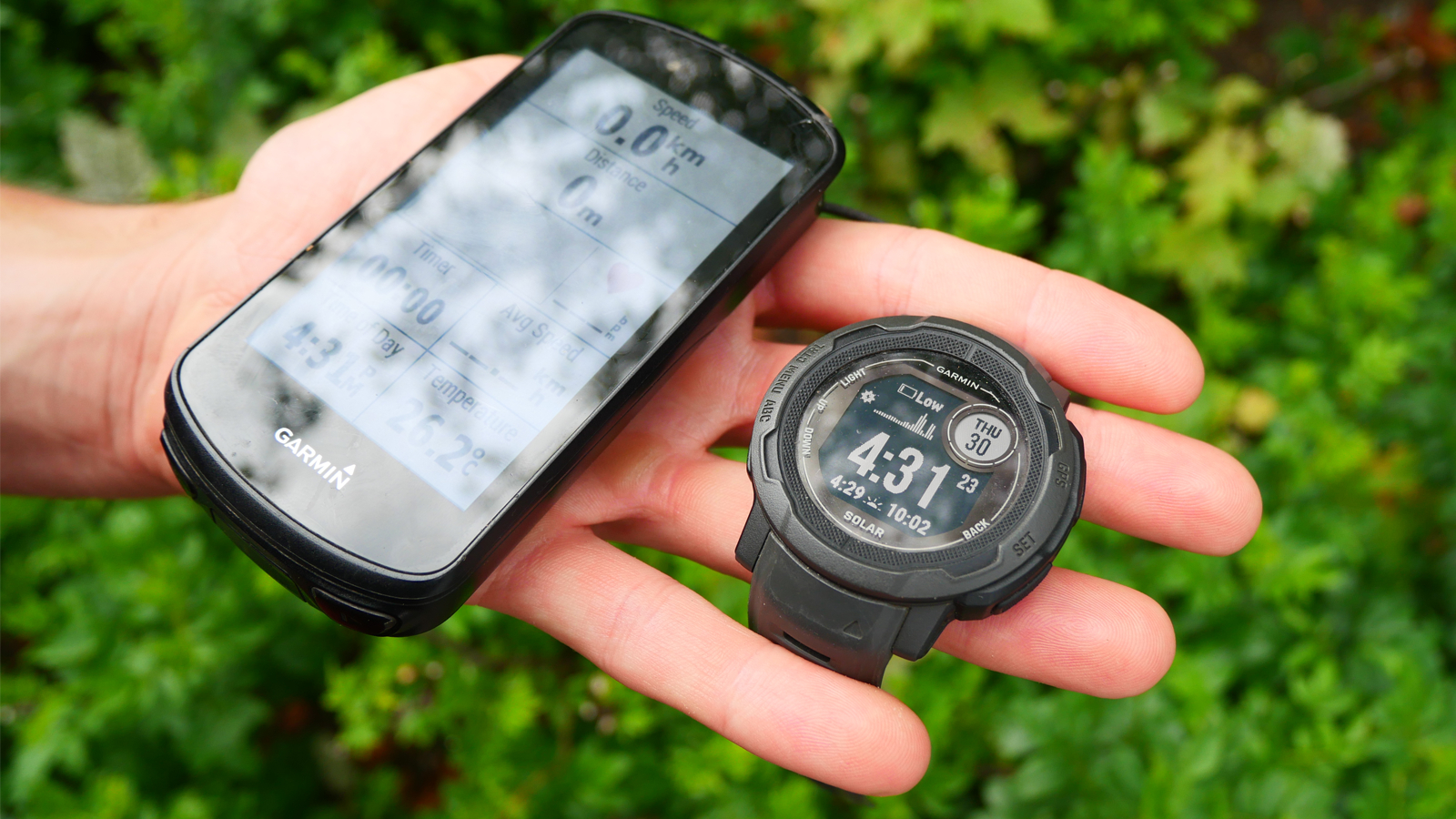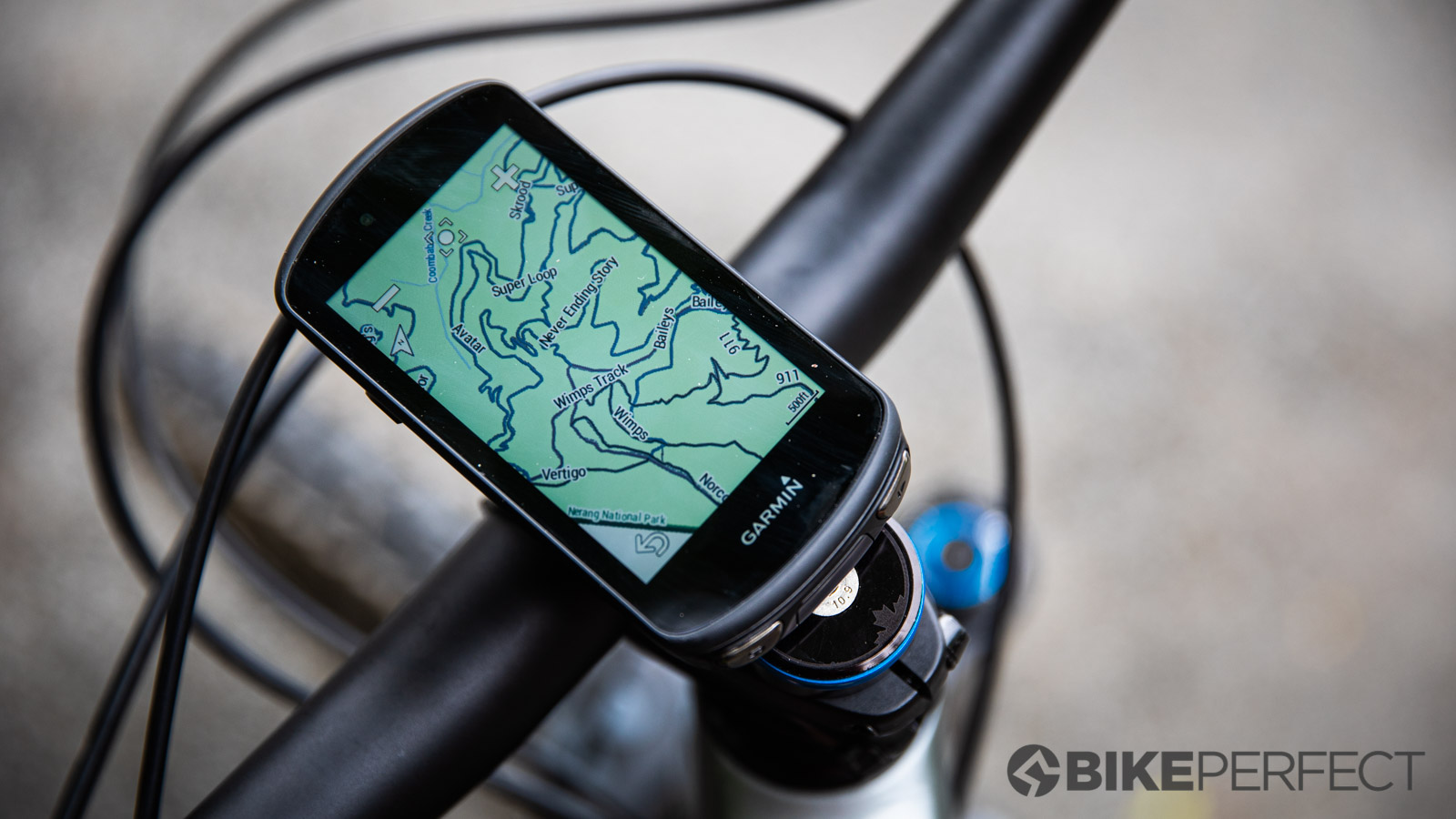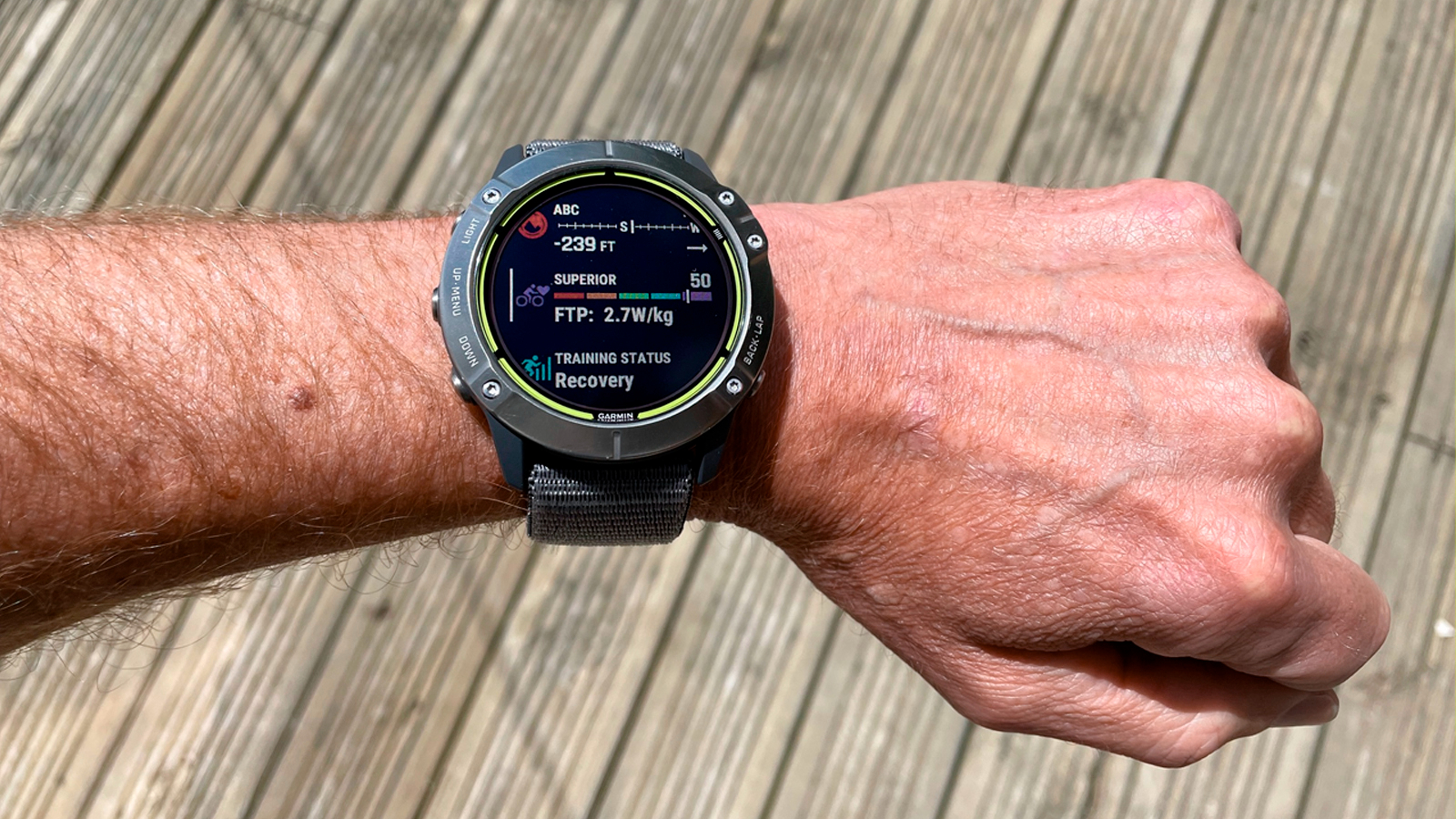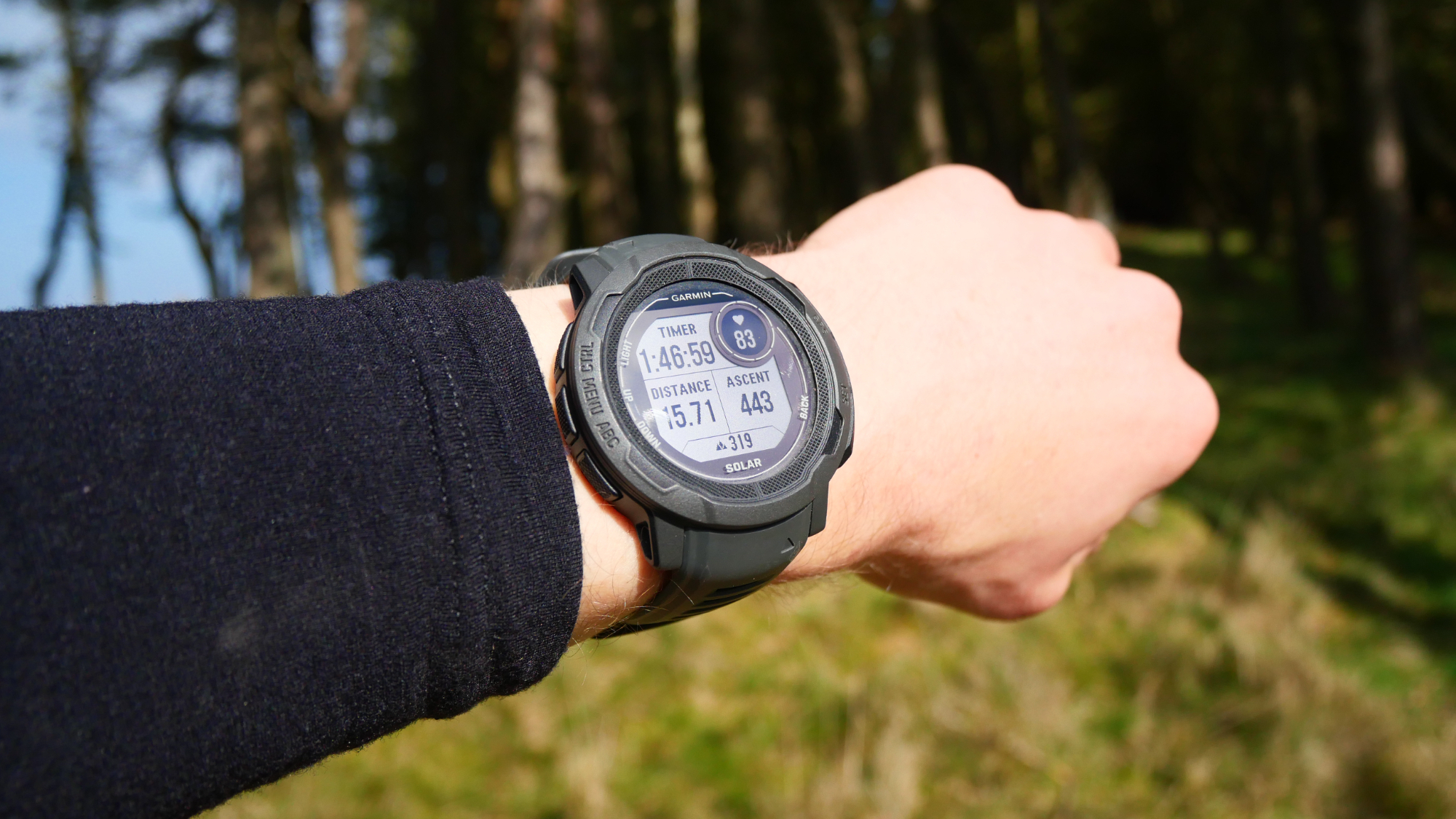Bike computer vs smartwatch – what's the best way to track your MTB ride?
If you are looking to track your mountain bike rides there are two main options, GPS computer or smartwatch. We break down the pros and cons of each

Loads of mountain bikers are choosing to record their rides, whether it's to share on social media or to track performance. You can of course use your phone, but many riders are moving to specific GPS recording devices as they offer better GPS accuracy and more features.
GPS head units mounted to the handlebars are the most popular for road disciplines, however the dynamic nature of mountain biking makes choosing MTB GPS computers a little more complicated as the best smartwatches for MTB also offer many benefits too. With leading brands such as Garmin and Wahoo making GPS computers and smartwatches with similar functions across their products, this makes differentiating between the type of tracker you want that little bit harder.
Keep reading as we breakdown the key differences between the device types to help you decide whether a bike computer or smartwatch is best for recording your mountain bike rides.
Display and metrics
A watch's screen size is always going to be restricted by the watch size which in turn limits the statistics it's able to display. If you are a press start and just ride sort of person then the display isn't going to be a big deal. However, if you are training, navigating or you want to use features like elevation charts or live Strava segments, then having a large screen that's easily readable is going to be an advantage.
Many GPS are also starting to use color and touchscreen to further enhance readability and user interaction. You can get these features on premium smartwatches but they don't offer as many advantages as they do on a head unit.

Mapping and navigation
Head units mounted to the handlebars have a distinct advantage over smartwatches when it comes to navigation. With a large and easily readable display mounted in a place you can see it without too much trouble, a GPS unit is going to not only be able to show more map details but also clearer navigation points. If you are doing long-distance rides into the unknown, then this will be a major reason to go for a GPS head unit.
GPS computers also have more onboard memory too, not only does that mean more maps, but also more detailed routes as some watches will need to reduce the number of cue points in order to follow the route.
Location accuracy is another area where a dedicated head unit is likely to perform better. Although top to mid-range watches that can connect to multiple satellite networks will offer accurate readings too.

Sensors
This is a big win for the smartwatch as they often have heart rate sensors, as well as other sensors, built into the device. The readings aren't usually as accurate as a dedicated chest heart rate strap, but if you aren't looking for 100 percent accuracy then a watch makes sense.
Lower-end smartwatches and activity trackers may not be able to connect to some third-party sensors like power meters or cadence sensors though, so it's worth checking specs before buying.
On the other hand, almost all head units will connect to any sensor via either Bluetooth or ANT+. They will also connect easily with smart turbo trainers and usually offer additional functionality.
Head units may also have other features, Garmin devices use an accelerometer to record your jumps and how smoothly you ride, something that isn't possible with a watch.
Battery life
This varies from device to device, GPS computers are larger and can house bigger batteries although watches are generally a bit more frugal with their smaller screens and lower GPS sampling.
Considering most mountain bikers probably aren't going for rides longer than five hours, both smartwatches and GPS computers are going to be able to record a full ride easily.
If marathon riding, big gravel rides, bikepacking trips are your thing, or you are not very good at remembering to charge your devices, then a dedicated head unit may serve you better in the battery department. That said, a wearable that offers 70 hours plus of GPS time is Garmin's Enduro watch. This could be much longer if you're riding in full sun, as it also has solar charging.

Fit and mounting compatibility
For mountain bikers this is a point of contention, while it's simple to mount a GPS computer to the handlebars it means that the device is left vulnerable in a crash. There are alternative methods like mounting it to the top tube but there is always a risk of your computer becoming damaged or knocked off and disappearing into the undergrowth.
Watches on the other hand are relatively safe mounted to your wrist and potentially under clothing. A smartwatch isn't going to fly off but not all riders like riding with something on their wrist. Too loose and a watch can get annoying as it moves around, too tight and it could contribute to arm pump and discomfort on a ride.
If you ride a lot of different bikes then a watch has an added advantage that you don't need to buy or move mounts between bikes.
Multi-sport usability
Multi-sports recording is another big win for the smartwatch. Generally, smartwatches are already tailored for running and other outdoor activities so if you do multiple sports then a smartwatch will serve you well across them all.
Smartwatches will have preset profiles that are tailored for different activities unlike GPS computers which are dedicated to cycling and the metrics most important to riding.
Most people tend to wear their smartwatch all the time, as opposed to a bike computer that only gets used when you ride. This allows smartwatches to give you access to all kinds of other data, such as step counts and bio-metrics, that a dedicated head unit cannot.
Verdict
Both GPS computer and smartwatches offer advantages when it comes to recording your ride. We often switch between the two depending on the types of rides we are going on.
For longer distances or exploring new areas, we typically opt for a head unit as we are most likely to need detailed mapping and navigation. For shorter rides, trail centers or more gravity orientated riding, we prefer the simplicity of a watch as mid-ride data, metrics, and navigation aren't as important, also a smartwatch is unlikely to get lost or damaged in a crash.

Graham Cottingham joined the BikePerfect team as our senior tech writer in 2020. With over 20 years of riding experience, he has dabbled in downhill, enduro, and gravel racing. Not afraid of a challenge, Graham has embraced bikepacking over the last few years and likes nothing more than strapping some bags to his bike and covering big miles to explore Scotland's wildernesses. When he isn’t shredding the gnar in the Tweed Valley, sleeping in bushes, or tinkering with bikes, he is writing tech reviews for BikePerfect.
Rides: Cotic SolarisMax, Stooge MK4, 24 Bicycles Le Toy 3, Surly Steamroller
Height: 177cm
Weight: 71kg
